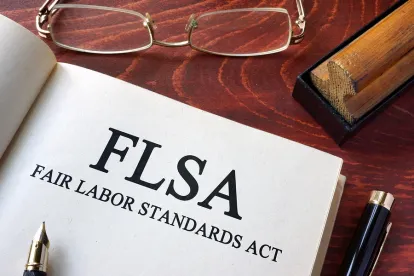The U.S. District Court for the Southern District of Texas recently denied a plant supervisor’s motion for conditional certification of a proposed collective action under the Fair Labor Standards Act (FLSA), and dismissed the complaint’s collective action claims.
In Thomas v. Argos USA LLC, the plaintiff employee was a plant supervisor whose employer “produces and distributes cements and aggregates.” The plaintiff claimed that he and other “similarly situated” plant supervisors were misclassified as exempt from overtime, and sought conditional certification of a collective action under FLSA Section 216(b).
Curiously, the plaintiff did “not attach an affidavit or any evidence to his motion” for conditional certification. This omission proved to be fatal for his motion. The court explained that conditional certification requires a “showing that other similarly situated individuals want to opt in to the lawsuit,” and noted that the plaintiff had “provided no affidavit or otherwise shown that others desire to join this lawsuit.” Thus, despite the generally lenient burden under Section 216, the court denied the plaintiff’s motion for conditional certification due to the absence of any supporting evidence.
Moreover, in dismissing (without prejudice) the collective action allegations, the court explained that the plaintiff failed to “provide job titles or locations for these allegedly similarly situated employees,” and proposed an overbroad class definition of “all persons who . . . worked at any business that was owned, operated, and/or acquired by Defendant, who were not paid overtime . . . ” The court held that plaintiff’s conclusory assertions regarding other “similarly situated” employees were insufficient under the Twombly/Iqbal standard set in Ashcroft v. Iqbal and Bell Atl. v. Twombly.
The Thomas decision seems to be an example of a plaintiff relying too heavily on the lenient standard for conditional certification under Section 216(b) of the FLSA. However, employers defending collective actions should bear in mind that while the burden for first-stage conditional certification is low, it is not non-existent.




 />i
/>i

